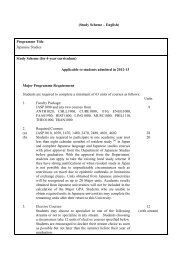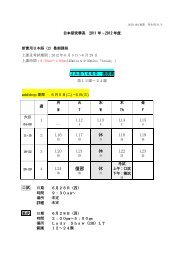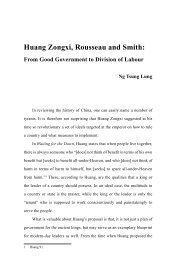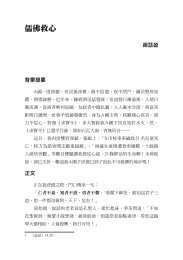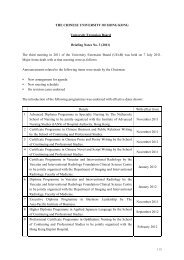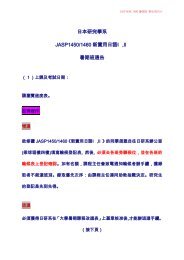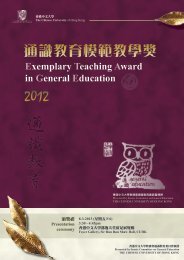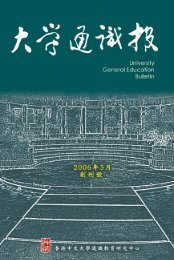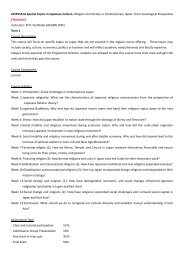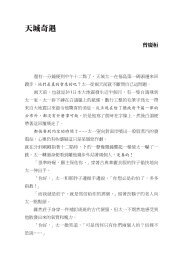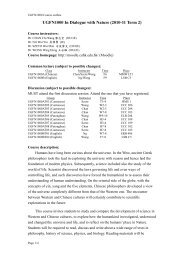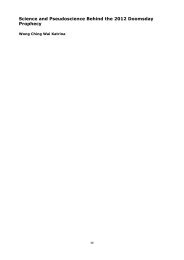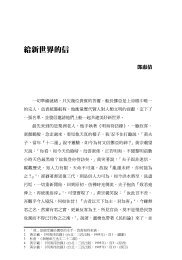ä¸è¼å ¨æ¸ - The Chinese University of Hong Kong
ä¸è¼å ¨æ¸ - The Chinese University of Hong Kong
ä¸è¼å ¨æ¸ - The Chinese University of Hong Kong
Create successful ePaper yourself
Turn your PDF publications into a flip-book with our unique Google optimized e-Paper software.
Susan Gano-Phillips, Affective Learning in General Education<br />
<br />
be specified independently <strong>of</strong> cognitive learning goals, but rather, under<br />
what circumstances might faculty and universities want to highlight affective<br />
learning outcomes and make an effort to specify intended affective learning<br />
outcomes, plan activities to support that learning, and explicitly assess<br />
affective learning (Gronlund & Brookhart, 2009).<br />
<strong>The</strong> Current Context for Affective Learning in <strong>Hong</strong> <strong>Kong</strong><br />
As we turn our attention to the use <strong>of</strong> affective learning in higher<br />
education, it is important to consider the unique context <strong>of</strong> <strong>Hong</strong> <strong>Kong</strong>’s higher<br />
education sector. <strong>The</strong>re are two major educational reforms underway in <strong>Hong</strong><br />
<strong>Kong</strong> that have a bearing on our consideration <strong>of</strong> affective learning. <strong>The</strong> first<br />
<strong>of</strong> these reforms relates to outcomes-based approaches (OBA) to teaching and<br />
learning, a phenomenon that has swept through higher education worldwide<br />
over the past several decades. This reform suggests the need to move from<br />
teacher-centric teaching practices to learner-centered practices that focus on<br />
explicitly stated and assessable goals for all students’ learning. In an effort to<br />
provide leadership, in 2007 the <strong>University</strong> Grants Committee (an appointed<br />
committee <strong>of</strong> the HKSAR Government) established an Outcomes-Based<br />
Assessment Task Force (OBATF) to “render assistance to and encourage<br />
teaching staff to adopt outcome-based approaches” (<strong>University</strong> Grants<br />
Committees, 2008). Throughout the higher education sector in <strong>Hong</strong> <strong>Kong</strong>,<br />
outcomes-based approaches are in varying stages <strong>of</strong> implementation, with<br />
minor variations in terminology at each affiliated institution. At the core <strong>of</strong><br />
the student-centered OBA, however, is a common philosophy that alignment



